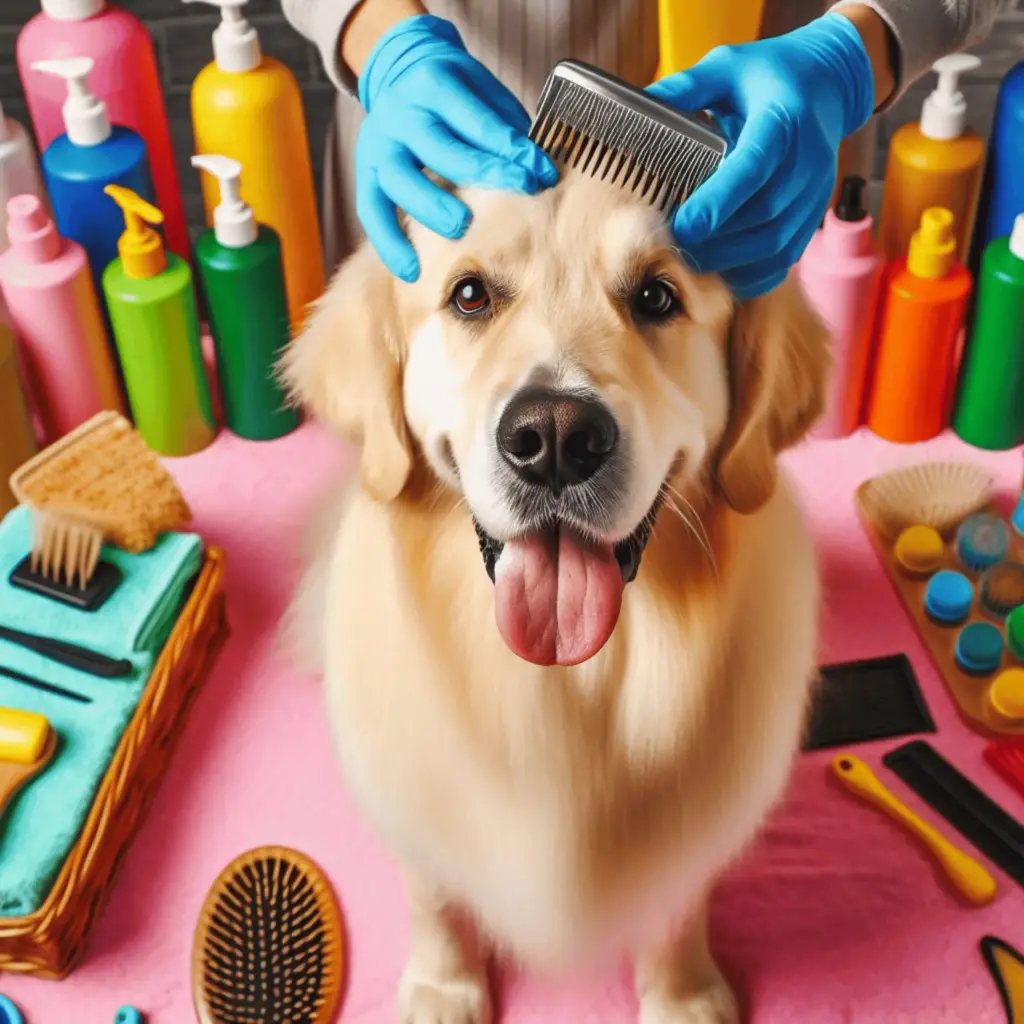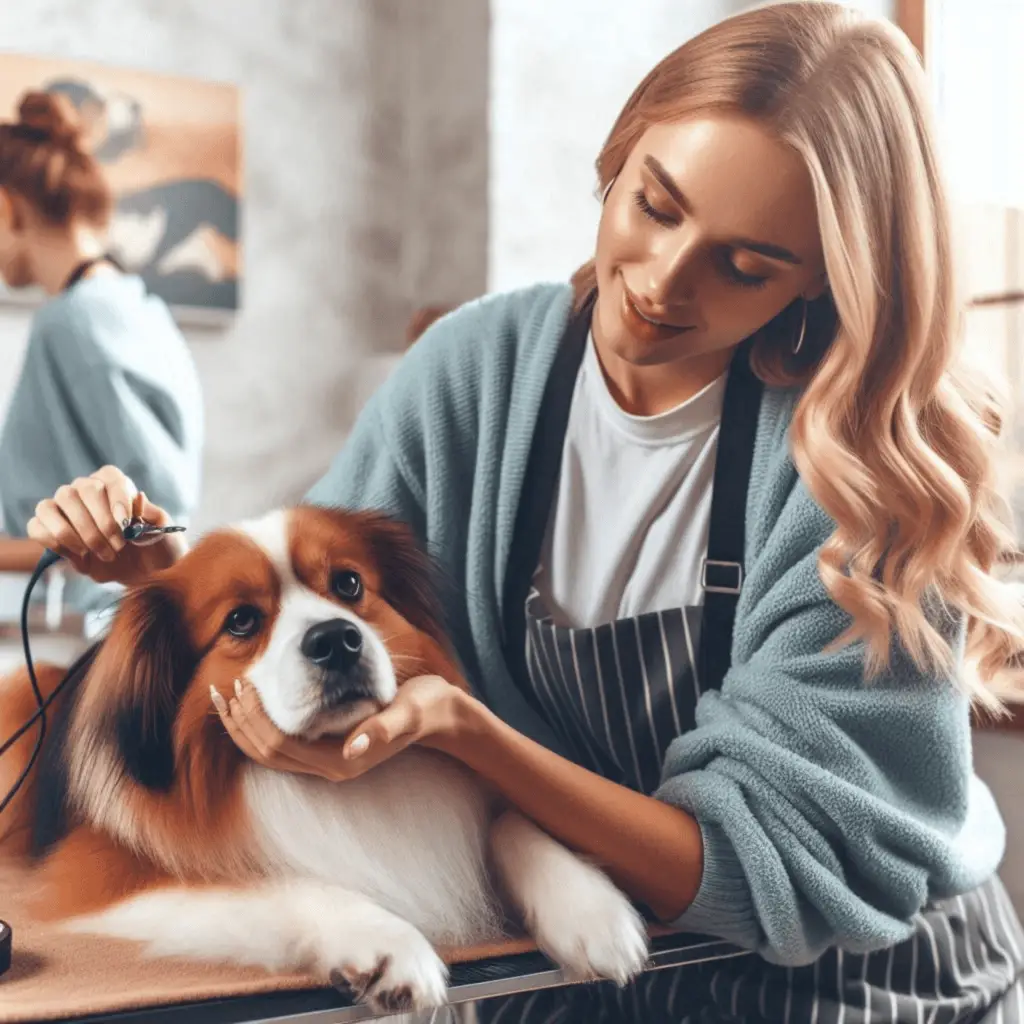How to Groom a Dog
Introduction
Grooming your dog is essential for their health and well-being. Whether you’re a new dog owner or a seasoned pet parent, understanding the process of how to groom a dog can make the experience enjoyable for both you and your furry friend.
Understanding Dog Grooming
Dog grooming involves various tasks to keep your dog clean, healthy, and comfortable. It includes brushing, bathing, trimming fur, clipping nails, and cleaning ears and eyes.
Benefits of Regular Dog Grooming

Regular grooming offers several benefits, including:
- Improved hygiene and smell
- Healthier coat and skin
- Early detection of health issues
- Reduced risk of infections
- Enhanced bond between you and your dog
Essential Dog Grooming Tools

To groom your dog effectively, you’ll need the following tools:
- Brushes and combs
- Dog shampoo and conditioner
- Nail clippers or grinders
- Ear cleaning solution
- Scissors and clippers
- Towels and hairdryer
Steps to Groom a Dog
Preparing Your Dog
Make sure your dog is relaxed and comfortable before beginning the grooming procedure. After gathering all required equipment, pick a place that is calm and well-lit.
Brushing and Combing
Brush your dog’s coat to remove tangles, dirt, and loose fur. Use a comb for finer details and to check for fleas and ticks.
Bathing Your Dog
Use lukewarm water and dog-specific shampoo. Wet your dog thoroughly, apply shampoo, and lather well. Rinse completely to avoid skin irritation.
Drying and Trimming
After towel drying your dog, use a low-setting hairdryer if necessary. Carefully trim the fur around the paws, ears, eyes, and sanitary areas.
Cleaning Ears and Eyes
Use an ear cleaning solution and cotton balls to clean your dog’s ears. Wipe around the eyes with a damp cloth to remove any discharge.
Nail Clipping
Clip your dog’s nails carefully, avoiding the quick (the sensitive part of the nail). Use a nail grinder if your dog is uncomfortable with clippers.
Tips for Grooming Different Breeds
You can also read here “Top 10 Dog Breeds” Different breeds have unique grooming needs. For example, long-haired breeds require more frequent brushing, while short-haired breeds need less intensive grooming. Research your dog’s breed-specific requirements for the best results.
Common Mistakes in Dog Grooming
Avoid these common mistakes to ensure a safe grooming experience:
- Using human products instead of dog-specific ones
- Bathing too frequently, which can dry out the skin
- Cutting nails too short
- Skipping regular ear cleaning
How to Handle a Nervous Dog During Grooming

If your dog is nervous during grooming:
- Take breaks to calm them down
- Use treats and positive reinforcement
- Speak softly and reassuringly
- Gradually introduce grooming tools and processes
Professional Grooming Services
Consider professional grooming services for:
- Specialized grooming needs
- Difficult-to-handle dogs
- Time-saving convenience
- Expert care and advice
Conclusion
Grooming your dog is a rewarding activity that promotes their health and strengthens your bond. By following these steps and tips, you can master the art of how to groom a dog, ensuring your pet looks and feels their best.
FAQs
Q1: How frequently should my dog be groomed?
The breed, coat type, and lifestyle of your dog all affect how often they need to be groomed. In general, dogs need to be groomed every four to eight weeks.
Q2: Is it okay to give my dog human shampoo?
A: The skin of your dog may become irritated by human shampoo. Use dog-specific shampoo at all times.
Q3: What should I do if my dog hates grooming?
A: Gradually acclimate your dog to grooming, use positive reinforcement, and consider seeking help from a professional groomer.
Q4: How can I safely trim my dog’s nails?
A: Use a nail clipper or grinder designed for dogs and avoid cutting the quick. If unsure, seek guidance from a vet or groomer.
Q5: Is professional grooming necessary?
A: While you can groom your dog at home, professional grooming can provide specialized care and handle more difficult grooming tasks.